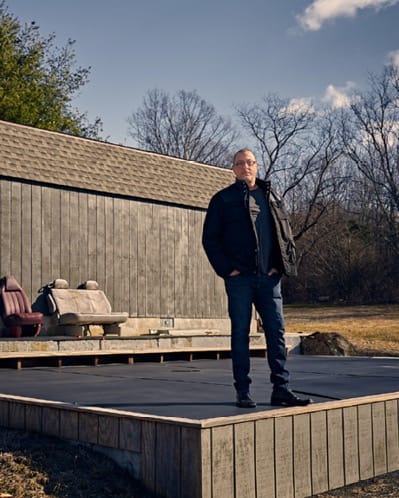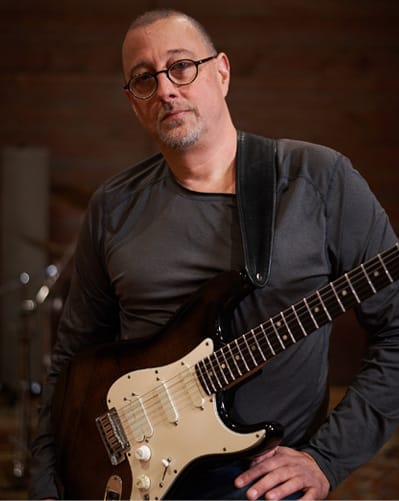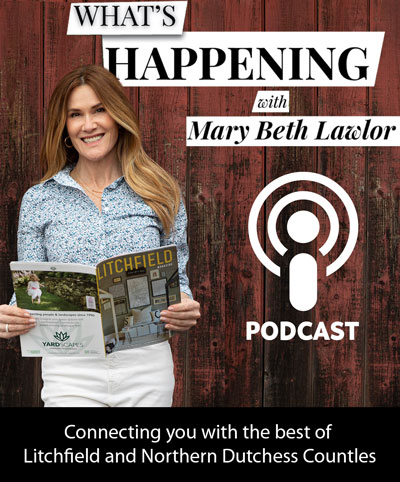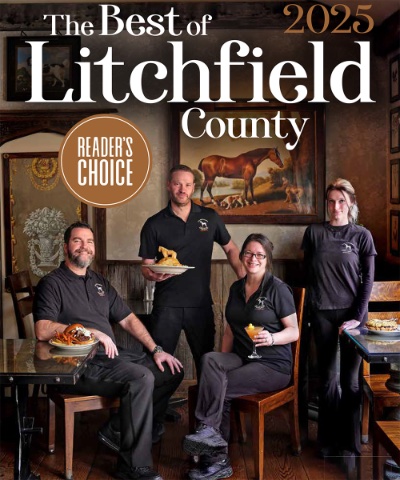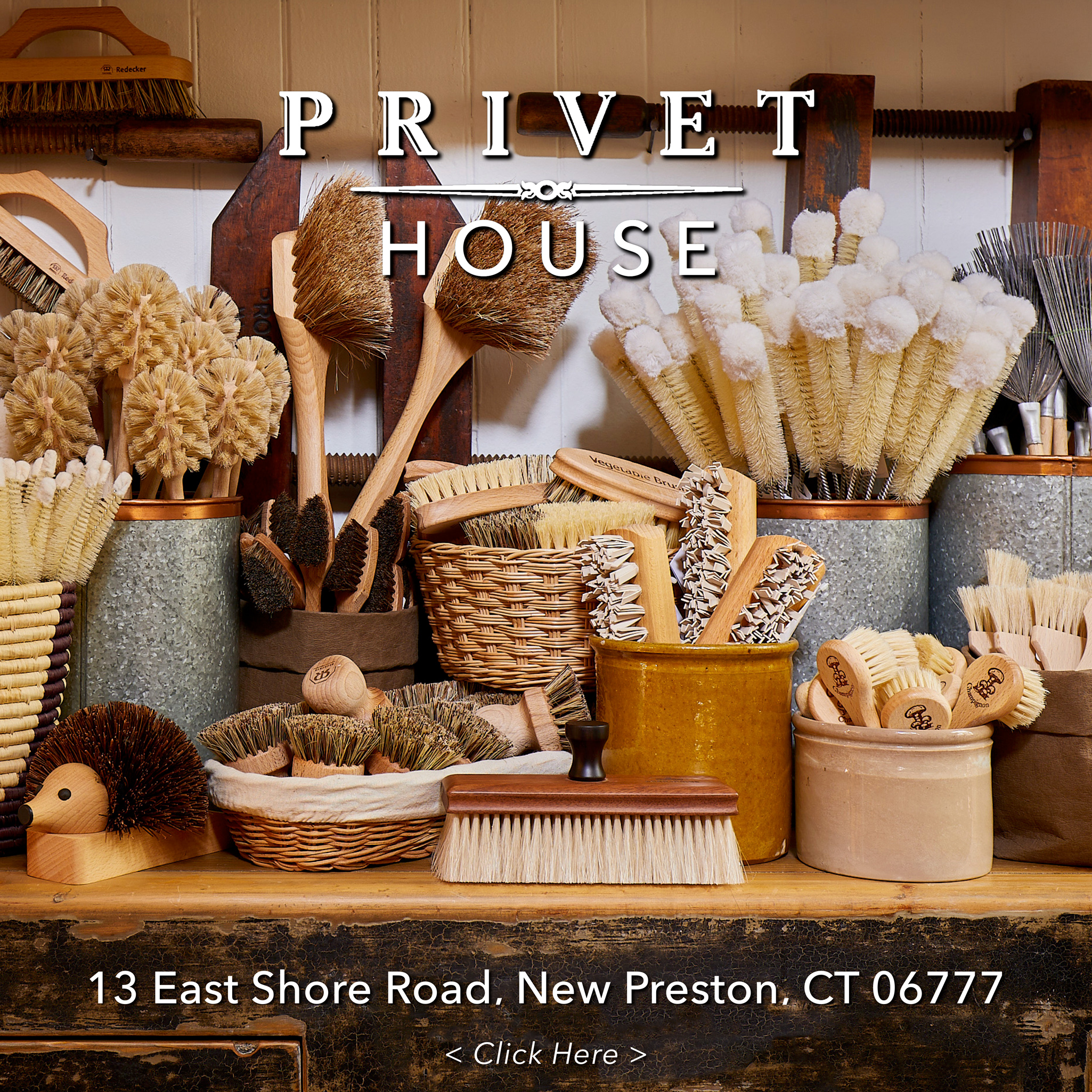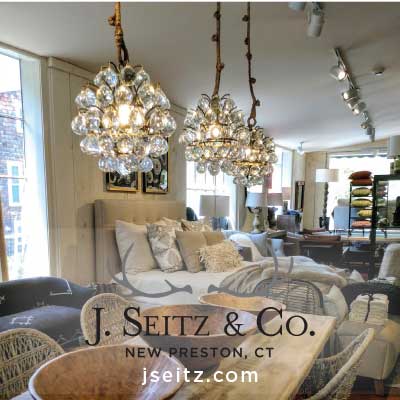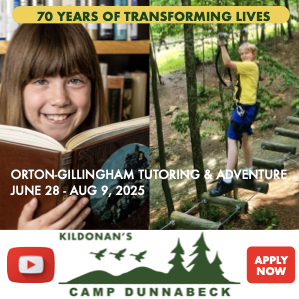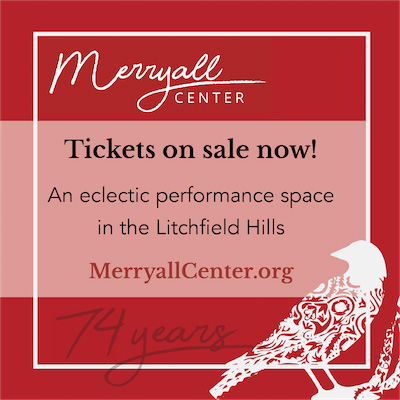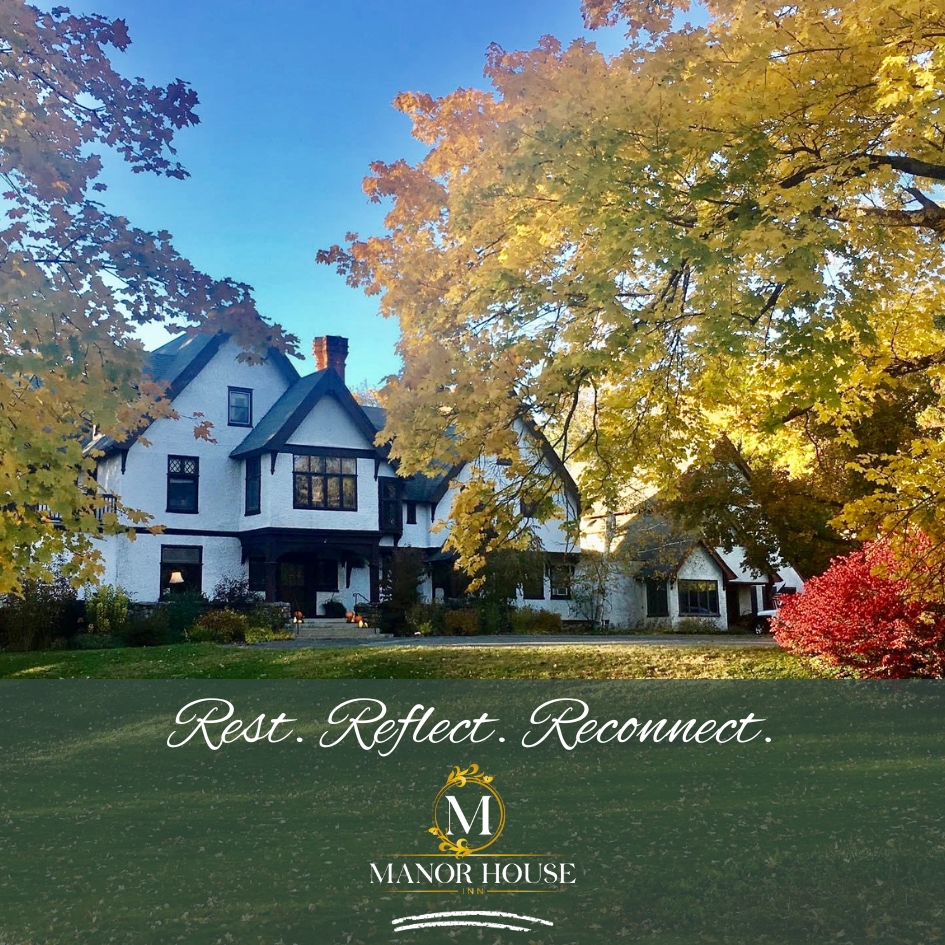February 1, 2019
Songwriter, guitarist, and producer are a few of the roles that Roxbury resident Marc Wager Weisgal has mastered in the world of music and entertainment.
Marc Wager Weisgal, son of Susan Blanchard and Michael Wager (Emanuel Weisgal), grew up on the Upper West side of New York City in the worlds of theatre, music, and art. He was surrounded by great personalities and accomplished individuals. His step-grandfather was lyricist Oscar Hammerstein. His father Michael Wager was an actor who performed in many plays and movies, as well as in spoken word productions with his life long friend Leonard Bernstein such as ‘Kaddish’.
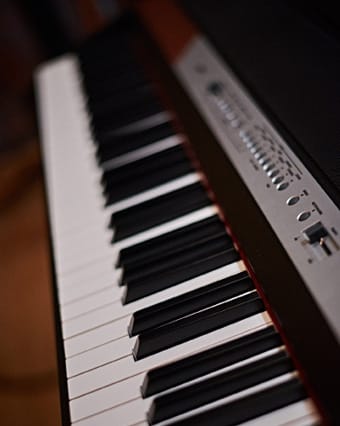
Marc’s father was also very well-known for his voiceovers on commercials. He was the voice of the Calvin Klein Obsession ads which featured quotes by D.H. Lawrence, F. Scott Fitzgerald and Ernest Hemingway (directed by David Lynch). Click here to hear Marc’s father’s voiceover for the Clavin Klein campaign. Marc’s paternal grandfather was Meyer Weisgal, a key figure in the founding of the State of Israel and a founder of the Weizman Institute of Science in Rehovot. Marc’s mother Susan Blanchard was a successful interior decorator in NYC (once married to actor Henry Fonda as well as actor Richard Widmark). She founded and operated the Susan Blanchard Gallery for women artists (one of the first of its kind).
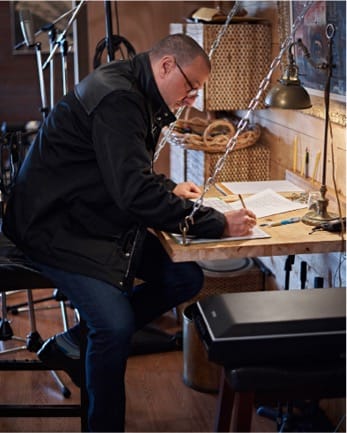
The first school Marc attended was Ramaz Yeshiva in Manhattan, but he wasn’t there long. He was kicked out of the Yeshiva for telling his teacher that he ate eggs and bacon for breakfast. He then attended PS166 on 89th Street, followed by Columbia Prep School, and spent his last year of high school in Israel. When he returned to the United States, he went to the Berklee College of Music in Boston and studied composing and arranging, and principal guitar. After graduating from Berklee he went back to Israel for 8 years to play with a Jazz band called ‘Jazz from the other side’. This was a valuable experience for Marc in that it was non-stop rehearsing and performing in a country where the art form of Jazz is highly respected. So far, his colorful childhood was far from typical — a good start for an emerging artist who would become a successful musician/producer.
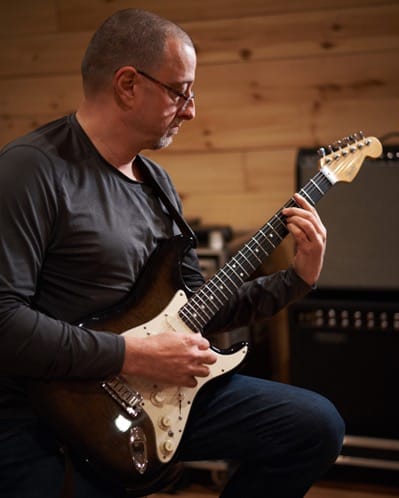
Once back in the United States, Marc moved to Roxbury, Connecticut in 1990, a place he knew well (his parents had a country house in the town) as he grew up spending time there. He briefly worked at the East Coast Music Mall in Danbury. Shortly thereafter, he started his first music studio and rehearsal facility in the nearby town of Seymour. But everything changed one day when Marc received a call that the Four Tops needed backline support (musical instruments, amps keyboards, drums etc.) at the Hartford Civic Center.
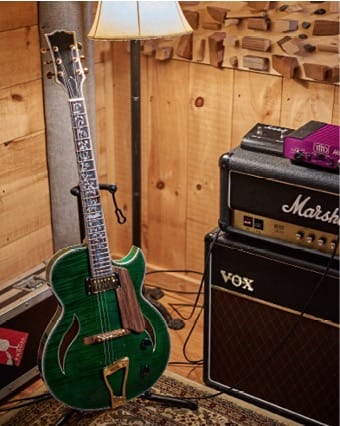
His studio was outfitted with all of the equipment, tools, and musical instruments required to do it but he didn’t know what to charge as a fee. So he called one of the rental companies in Manhattan to get an idea on pricing. Once he discovered it was a viable way to earn a living, he decided to start a business providing backline services to venues in Connecticut and greater New England. He took it seriously, from arriving with all of the equipment required (and extras) for each concert, setting it all up according to the musicians’ preferences, testing, staying backstage during the performances (in case he was needed), and of course, packing up at the end. Marc never left anything to chance and within 8 months he took over the market in Connecticut. He became the one to provide backline for national acts from all over the country performing at all of the venues in the state of Connecticut and the surrounding regions.
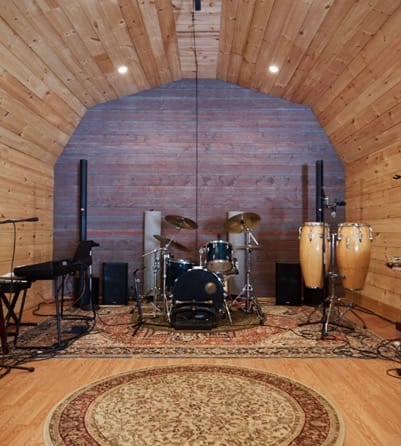
During this period, Marc had the opportunity to work with big names such as The Rascals, Tito Puente, Dave Matthews, Edgar Winter, Isaac Hayes, Bon Jovi, Roberta Flack, Blood Sweat And Tears, Chuck Mangione, Ray Charles, Alicia Keys, John Scofield, Jose Feliciano, Donna Summer, Judy Collins, and the Mamas & the Papas, to name a few. For a list of the performers that he provided backline support to during that period, click here.
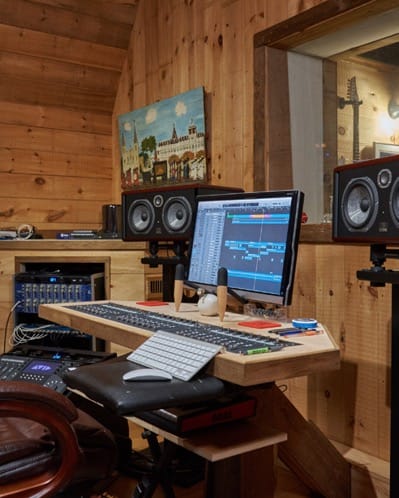
In 2002, after 12 successful years, Marc sold his company to David “Lefty” Foster, the owner and manager of the Shaboo Club, a legendary 1970s and 80s blues and rock concert dance hall, in Willimantic — it was the place to hear and dance to great music. Foster brought many top artists to the club including Bonnie Raitt, Miles Davis, The Police, Aerosmith, and Tom Waits. Foster is now the leader and frontman of the Mohegan Sun Allstars.
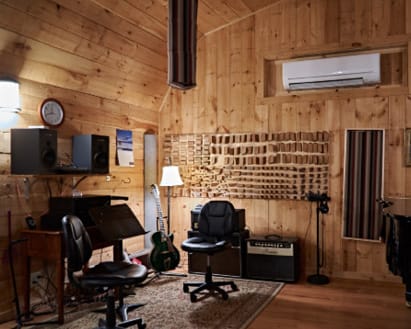
At this point in his career, Marc felt it was time to go back to running his own studio again and of course, always a musician, he played in many bands. He had a warehouse space on his property in Roxbury that housed the equipment from his backline business and once the building was empty, he converted it into a professional recording studio, naming it Roxbury Station Recording Studios. The recording studio’s gambrel roof has acoustic benefits to it because it breaks up standing waves. The interior walls are made of rough-hewn pine. There are two recording rooms—Studios A and B— and a control room where Marc Weisgal handles the engineering. The vocal studio is enclosed in glass just outside the control room. All rooms are electronically connected to the control room. There are many interesting shapes on the walls and hanging from the ceiling professionally known as “specialized acoustic treatment” called diffusers, absorbers, and broadband absorbers. Roxbury Station Recording Studios has a great vibe, with a steady flow of musicians and songwriters booking sessions, creating great music. With Marc’s experience in a broad scope of contemporary and historic styles, his guidance and direction are invaluable in helping these artists reach the sound they’re looking for.
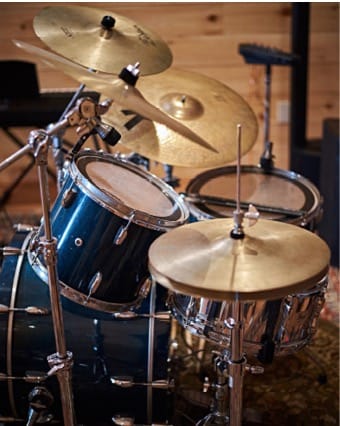
After 2002, he was asked to be on the Board of Rodgers & Hammerstein alongside Mary Rodgers Guettel, Ted Chapin, and a few lawyers. Marc mentions a very important lesson he learned from Ted Chapin, who said to him, “One of the things we don’t do here at Rodgers & Hammerstein is that we don’t generally license the use of our music outside the context of the dramatic work as it dilutes the value of the dramatic intent and therefore dilutes the catalogue as a whole.” Whether it is for a high school or college, or a theatre, the folks at Rodgers & Hammerstein still provide all of the scores, parts, posters, aides, and tools to execute the shows properly. That’s what keeps the value of the property up.
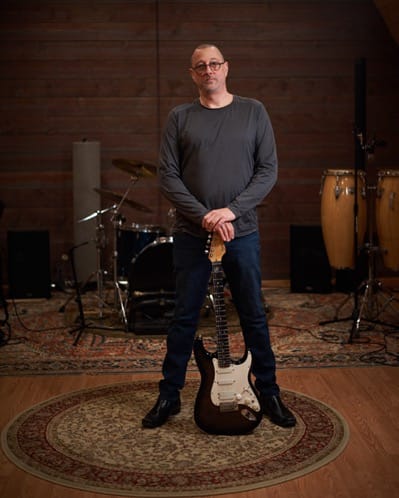
Another message along the same theme was from Marc’s cousin Andy Hammerstein who said, “The music must follow the cadences of the libretto, not the other way around.” The words stayed with Marc and he applied it to his own work. “This lesson started to sink in with me. All of my life I have wanted to be a virtuoso guitarist. But I realized that people don’t care as much as I think they do about that. People only care about being moved, about having a great experience.” Marc explains, “We are not musicians, we are storytellers. We just happen to use music to do it.” Marc says his concern is not in creating beautiful melodies and rhythms or high production values. “The high production values are of absolutely no use to me other than to the extent to which they serve the telling of the story or in conveying the message.” He adds, “You don’t write an intro first, you write the message first, then you work backward. Just like you don’t write a preface before you write the book. As a producer in the recording studio, when we are evaluating whether we are doing a good job on a particular piece, one of the things we ask ourselves is: Is it believable? It is not a question of being melodically beautiful or rhythmically satisfying, but is it believable? ”
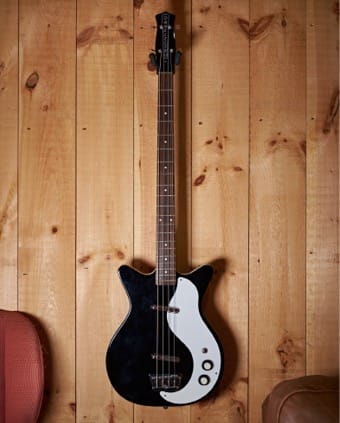
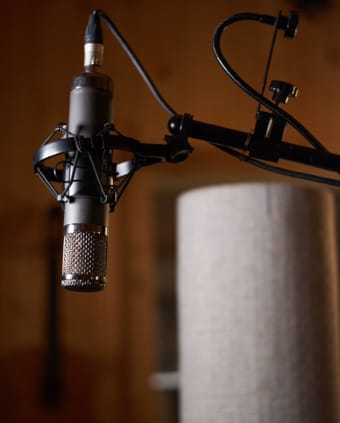
During the early years of running his backline business in Roxbury, Marc had to learn how to build custom software in order to run his production business. In 2007 he became involved in software and digital signage business with two partners Jeff Mele and Josh Peters. They all had sound and entertainment backgrounds and they created the software and installation of the signs that featured the marketing data of events for Lincoln Center. These LED and LCD structures were situated in the exterior and in the lobbies all over the Lincoln Center campus. Later they did the same for BAM, The New Whitney Museum, The Schomburg Center as well as CT venues such as The Bushnell Theater, Hartford Stage and the XL-Center. Marc is still involved in servicing these clients.
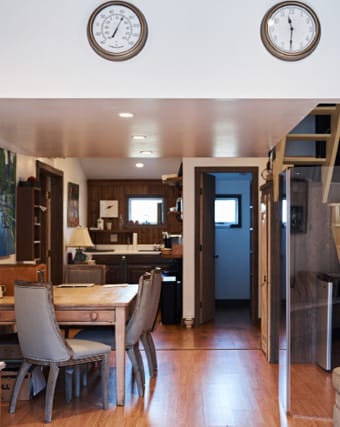
Locally, Marc is very involved in the music scene of Litchfield County. He and his band Lux Lounge perform at local venues, fundraisers and community events. Felicia Michael is the singer of the band and Frank Brockelhurst is the music director and bass player. Marc has also been playing with Soul and R&B legend Kenny Hamber for the last 10 years or so performing at Foxwoods and other larger venues and is the co-founder with Roxbury resident Doug White (jazz saxophonist) and producer of the Roxbury Jazz Festival. He produces the Roxbury Station Music Festival with his studio partner Roger Filgate and actor (also Roxbury resident) Michael Lombardi. “With the music festivals that I produce in the area, I want people to feel like they are getting a world-class show and spectacle. And I want to bring people of diverse artistic and cultural backgrounds together,” he says. Indeed the times call for such togetherness. We think Marc Wager Weisgal is onto something.


Marc Weisgal and friends perform at The Makery Co-Working on the second Saturday of every month. Makery Co-Working is located at 20 Bank Street in New Milford. On Saturday, February 16, 5 to 7 pm, the theme will be R&B/Motown/Soul with Kenny Hamber.
Marc will also be producing a special performance with Michael Lombardi at The Washington Montessori School on Saturday, April 6. Check back with us in the GOINGS ON section of Happening in the Hills for further details.
The Roxbury Jazz Festival will be in August and the Roxbury Station Music Festival will take place in late August-early September. Check back with us in the GOINGS ON section of Happening in the Hills for further details.
You may contact Marc Wager Weisgal at:
Roxbury Station Recording Studios
facebook.com/roxburystation/
email: mwager@mac.com
